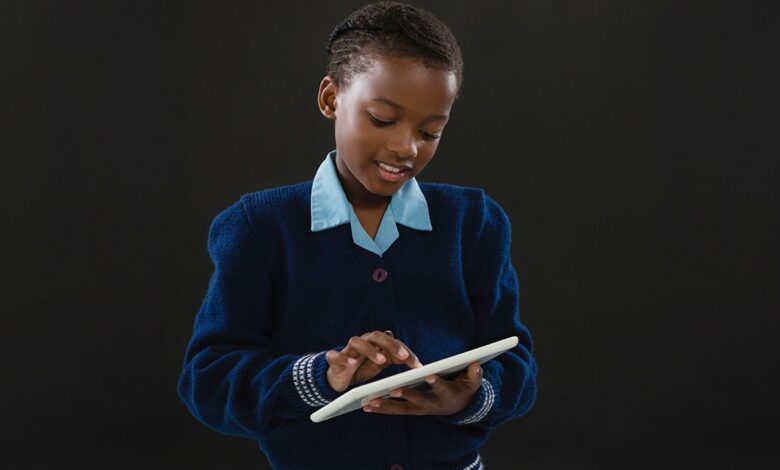Building resilient schools for Africa’s children

This means that, in times of crisis such as the pandemic or natural disasters, African students without access to digital technology progress less than their peers in the global north. The Technology-Enabled Open Schools for All (TeOSS) project, created by UNESCO and supported by Huawei, is designed to address this by enhancing the digital transformation of schools in three African countries: Ethiopia, Egypt and Ghana.
“The project aims to address challenges by integrating digital learning platforms, curriculum-aligned digital content, teachers’ digital competencies, and the mainstreaming of open schooling models,” says Catherine Du, head of Huawei’s TECH4ALL digital inclusion program. “It aims to reimagine and build the digital future of school education.”
Future-proofing schools through digital learning
During the pandemic, African educators used a range of different distance education techniques to try and bridge the educational gap caused by school closures. Tools spanned the gamut from radio and TV through to print and, where practical, online. Today, some are building on those foundations to incorporate digital tools into their daily workload and prepare their students for a future in a workforce that, in Africa as elsewhere, increasingly requires online skills.
The TeOSS project, which will run through 2024, aims to help teachers such as Tefera integrate digital learning into their teaching habits, as well as providing high-quality digital learning resources and developing Science, Technology, Engineering, Arts and Mathematics (STEAM) curriculum materials.
The scale of the project is substantial. “In Ethiopia, the project benefits 12,000 students and 250 educators from 24 selected pilot secondary schools and enhances access to educational national platforms and digital content for all secondary students and educators in the country,” Du says. Huawei has enabled global and local partners to develop STEAM curriculums, including almost 100 digital interactive resources for grade 9 and 10 students in Ethiopia.
In Egypt, a National Distance Learning Centre will support 950,000 teachers, while in Ghana, in addition to pilot schools, TeOSS is enhancing national education platforms for all students and educators in the country.
Expanding connectivity for students and teachers
Connectivity and access to devices are key to effective online learning and for Tefera’s students, access is sometimes a problem. Devices are relatively easy to find, she reports. “Even if they didn’t have their own cellphone, they could use their parents’ or one of the family’s phones for the time that we had a class,” she says.
Source link




